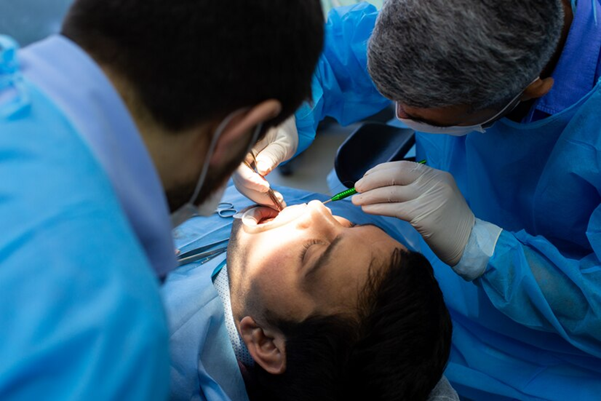When faced with the diagnosis of oral cancer, exploring treatment options becomes a critical step towards ensuring the best possible outcome. Among the various treatments available, oral cancer surgery stands as a prominent contender, offering unique advantages and considerations that set it apart from alternative approaches.
Oral Cancer Surgery: Precision and Effectiveness
Oral cancer surgery involves the removal of cancerous tissues from the affected area. This procedure aims to eliminate the disease while preserving as much healthy tissue as possible. The benefits of oral cancer surgery include:
- Precise Targeting: Surgeons can accurately target and remove the cancerous growth, minimizing damage to surrounding healthy tissues.
- Immediate Results: Surgery offers the immediate removal of cancerous cells, providing a tangible sense of progress in the treatment journey.
- Reduced Risk of Recurrence: Surgical removal of cancerous tissues reduces the likelihood of cancer regrowth in the same area.
- Enhanced Quality of Life: Successful surgery can restore oral function, speech, and appearance, contributing to an improved quality of life.
Alternative Treatments: Complementary Approaches
While oral cancer surgery offers distinct advantages, alternative treatments play a crucial role in comprehensive cancer care. These treatments include:
- Radiation Therapy: Using high-energy rays to target and destroy cancer cells, radiation therapy is often used in conjunction with surgery to ensure thorough treatment.
- Chemotherapy: Administering powerful drugs that target and eliminate rapidly dividing cancer cells throughout the body, chemotherapy complements surgery for more aggressive cancers.
- Targeted Therapies: These therapies focus on specific molecules involved in cancer growth, blocking their activity and limiting cancer progression.
Tailored Approach: Collaborative Decision-Making
The choice between oral cancer surgery and alternative treatments depends on factors such as cancer type, stage, and overall health. The collaboration between the patient, oncologist, and surgeon is vital in determining the most suitable treatment plan.
Balancing Pros and Cons: Individualized Care
Each treatment option carries its own set of benefits and considerations. While oral cancer surgery offers precision and immediate results, alternative treatments provide a broader approach that targets cancer cells throughout the body. A combination of treatments provides the most effective path towards remission and recovery in most cases.
The Role of Early Detection
Regardless of the treatment chosen, early detection remains the cornerstone of successful oral cancer management. Regular dental check-ups, self-examinations, and awareness of potential symptoms empower individuals to seek timely medical attention, leading to improved treatment outcomes.
In Conclusion
The decision between oral cancer surgery and other treatments is a complex one that should be made in consultation with healthcare professionals. Ultimately, the goal is to create a tailored treatment plan to address the individual’s specific needs and maximize the chances of successful recovery. With advancements in medical technology and a patient-centered approach, the journey towards overcoming oral cancer is marked by hope, resilience, and a commitment to restoring oral health.




